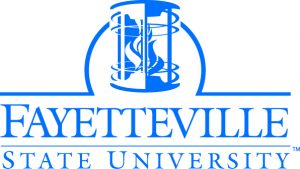 The goal of this ranking article is to help students who are looking for an online bachelor’s degree from historically black colleges and universities (HBCUs). These institutions play an often-underrated role in higher education in our country, and while there are only 102 HBCUs in the U.S., they educate hundreds of thousands of college students each year, many of whom are African-American. In some cases, African-American graduates are the first in their families to receive a college education, and amongst HBCU graduates are famous or noted civil rights activists, educators, doctors, writers, politicians, business owners, astronauts, judges, attorneys, athletes, and many more.
The goal of this ranking article is to help students who are looking for an online bachelor’s degree from historically black colleges and universities (HBCUs). These institutions play an often-underrated role in higher education in our country, and while there are only 102 HBCUs in the U.S., they educate hundreds of thousands of college students each year, many of whom are African-American. In some cases, African-American graduates are the first in their families to receive a college education, and amongst HBCU graduates are famous or noted civil rights activists, educators, doctors, writers, politicians, business owners, astronauts, judges, attorneys, athletes, and many more.
Of the 102 HBCUs located in 20 states and the U.S. Virgin Islands, 30 offer one or more online bachelor’s degree programs, increasing the number of states from which students can earn an HBCU-based education. We have listed these schools below, ranking them according to tuition and national ranking.
Methodology
In order to find the 30 most affordable online bachelor’s degree-granting historically black colleges and universities, we developed a specific set of ranking criteria. We gathered a list of HBCUs and cross-referenced the information we found with the National Center of Education Statistics, U.S. News & World Report, and each school’s website. We took our initial pool of 80 HBCUs and narrowed it down to the top 30 based on tuition and national rankings as explained below.
Average Cost of Undergraduate Attendance
When choosing an online bachelor’s degree program, many students first look at the cost of tuition. For the purpose of this ranking, we used tuition information obtained from each school’s website as well as the College Navigator database at the NCES. Although we provided both in-state and out-of-state tuition rates for each school listed, we awarded points based on the average of the two rates according to the point system below.
Points:
$10,000 and under: 4 points
$10,001 to $15,000: 3 points
$15,001 to $20,000: 2 points
$20,001 or more: 1 point
College Ranking
In addition to considering the average cost of undergraduate attendance, it is also important that prospective students know how a particular school or program compares to other similar institutions offering the same or comparable online undergraduate degrees. We used information obtained from U.S. News & World Report and awarded points based on its “Historically Black Colleges and Universities” ranking category as follows.
Points:
U.S. News and World Report: Historically Black Colleges and Universities Ranking
Top 10: 5 points
Top 11 to 25: 3 points
Top 26 to 50: 2 points
Top 51 or more: 1 point
Frequently Asked Questions:
- What is an HBCU?
- What Are the Benefits of Attending an HBCU?
- What Are the Benefits of Earning a Bachelor’s Degree Online?
SUMMARY RANKING OF TOP 10 MOST AFFORDABLE ONLINE BACHELOR’S – GRANTING HISTORICALLY BLACK COLLEGES AND UNIVERSITIES
PROGRAMS:
- North Carolina Central University
- North Carolina A&T State University
- Alcorn State University
- Claflin University
- Fayetteville State University
- Delaware State University
- Jackson State University
- Morgan State University
- Kentucky State University
- Howard University
Ranking Top 30 Most Affordable Online Bachelor’s- Granting Historically Black Colleges and Universities
30. Texas Southern University
Houston, Texas

Points: 4
School Website
Established in 1927 as the Houston Colored Junior College, Texas Southern University is currently one of the largest and most comprehensive HBCUs in the country, enrolling more than 10,000 students and offering more than 100 academic programs of study at the undergraduate and graduate levels. In addition, it is the only HBCU in the state to be recognized as one of the top colleges in America by Forbes. Students looking to pursue an online bachelor’s degree can choose from programs in the administration of justice, emergency management and homeland security, general studies, and healthcare administration.
Average Program Cost: $15,398
In-State Tuition: $9,173
Out-of-State Tuition: $21,623
U.S. News & World Report Ranking:
#45
29. Tennessee State University
Nashville, Tennessee

Points: 4
School Website
Founded in 1912, Tennessee State University is part of the State University and Community College System of Tennessee and a member of the Thurgood Marshall College Fund. Amongst its many notable alumni is Oprah Winfrey, and the school’s achievements are routinely recognized by U.S. News & World Report. TSU offers degree programs in more than 80 majors, from the associate level through the doctoral level. Online bachelor’s degree options include Bachelor of Science programs in urban studies, sociology, interdisciplinary studies, and professional studies with concentrations in organizational leadership, international organizational leadership, information technology, and health administration. All of the bachelor’s degrees offered by TSU require a minimum of 120 credits for graduation.
Average Program Cost: $15,152
In-State Tuition: $8,792
Out-of-State Tuition: $21,512
U.S. News & World Report Ranking:
#34 (tie)
28. Wilberforce University
Wilberforce, Ohio

Points: 4
School Website
Founded in 1856, Wilberforce University is a member of the United Negro College Fund and affiliated with the African Methodist Episcopal Church. It claims the title of being the first private HBCU in the country and offers bachelor’s and master’s degrees, including four online Bachelor of Science degrees through its Credentials for Leadership in Management and Business (CLIMB) program. CLIMB is a degree-completion program designed for adult students who have earned a minimum of 45 college credits, and students can choose from available majors in organizational management, information systems management, health and human services, and criminal justice administration. Courses are available on-campus, online, or in a blended format, and students must complete 120 to 122 credits, depending on the degree.
Average Program Cost: $13,250
In-State Tuition: $13,250
Out-of-State Tuition: $13,250
U.S. News & World Report Ranking:
#58-#76
27. Coppin State University
Baltimore, Maryland

Points: 4
School Website
Founded in 1900, Coppin State University in Baltimore, Maryland is a member of the Thurgood Marshall College Fund and part of the University System of Maryland. The school’s College of Business confers one fully online bachelor’s degree: a Bachelor of Science in Business Management. The program’s faculty members are the same for both online and on-campus students, and they are Sloan-C Certified for innovative online teaching. The program is provided through a combination of content delivery technologies, including Tegrity, Lync, Skype, and Blackboard. Students must complete a minimum of 120 credits in order to earn their degree.
Average Program Cost: $12,008
In-State Tuition: $8,873
Out-of-State Tuition: $15,144
U.S. News & World Report Ranking:
#53
26. Virginia University of Lynchburg
Lynchburg, Virginia

Points: 4
School Website
Founded as a seminary in 1886, Virginia University of Lynchburg is associated with the Baptist Church and offers nine degrees at the undergraduate and graduate levels. This includes full or partial online bachelor’s degrees such as Bachelor of Arts programs in religious studies, organizational management, and business administration. Additional online courses are also available beyond these programs, and master’s degrees are offered in divinity and organizational management as well. VUL offers credit for military experience and training as well as national examinations, technical training, professional certifications, and documentation for other college-level learning.
Average Program Cost: $9,000
In-State Tuition: $9,000
Out-of-State Tuition: $9,000
U.S. News & World Report Ranking:
N/A
25. Johnson C. Smith University
Charlotte, North Carolina

Points: 5
School Website
Founded in 1867, Johnson C. Smith University is located in Charlotte, North Carolina. A member of the United Negro College Fund, JCSU offers undergraduate and graduate degrees, including six accelerated online bachelor’s programs through its Metropolitan College. These include bachelor’s degrees in business administration with concentrations in accounting and management as well as programs in criminology, social work, sport management, and interdisciplinary studies. Courses are offered in eight- or 16-week academic periods, and students can choose between evening, on-campus day, online, or a combination of two formats. For most programs, students must complete 122 credits to graduate.
Average Program Cost: $18,236
In-State Tuition: $18,236
Out-of-State Tuition: $18,236
U.S. News & World Report Ranking:
#22 (tie)
24. Prairie View A&M University
Prairie View, Texas

Points: 5
School Website
Prairie View A&M University, founded in 1876, is a member of the Thurgood Marshall College Fund and part of the Texas A&M University System. Known as a STEM leader, PVAMU boasts the second-highest number of black STEM graduates in the A&M System. PVAMU offers undergraduate and graduate degrees, including an online Bachelor of Science in Criminal Justice and an online Bachelor of Science in Nursing program that requires an associate degree and registered nurse (RN) licensure for admission and the completion of 128 credits for graduation. In addition to these fully online degrees, PVAMU offers other online courses that students may apply to their on-campus degrees.
Average Program Cost: $17,688
In-State Tuition: $10,533
Out-of-State Tuition: $24,843
U.S. News & World Report Ranking:
#20
23. Norfolk State University
Norfolk, Virginia

Points: 5
School Website
Established in 1935, Norfolk State University, with its heritage as an HBCU and a regional university, puts teaching and outreach at the center of its curriculum. The school confers more than 50 undergraduate and graduate degrees, including online bachelor’s programs in psychology, interdisciplinary studies, history, tourism and hospitality management, health services management, and business with a concentration in information management. Undergraduate students holding a healthcare-related bachelor’s or associate degree may pursue an online certificate in health services management, and students who have earned their registered nurse (RN) licensure and an associate in nursing degree may pursue an online Bachelor of Science in Nursing.
Average Program Cost: $15,074
In-State Tuition: $9,490
Out-of-State Tuition: $20,658
U.S. News & World Report Ranking:
#22 (tie)
22. Alabama A&M University
Huntsville, Alabama

Points: 5
School Website
Alabama A&M University, founded in Normal, Alabama in 1875, hosts three education centers: one for extended studies for adults and continuing education, one for teaching and learning, and one for distance education and e-learning. AAMU confers more than 70 degree programs at the undergraduate and graduate levels, and those seeking online options may pursue the Bachelor of Science in Management degree. Offered through the Department of Management, Marketing, and Logistics within AAMU’s College of Business and Public Affairs, the broad-based curriculum examines entrepreneurial opportunities in business, government, and non-profit sectors. AAMU also offers additional online courses that students may use to supplement on-campus programs in other majors.
Average Program Cost: $14,049
In-State Tuition: $9,744
Out-of-State Tuition: $18,354
U.S. News & World Report Ranking:
#26
21. Bethune-Cookman University
Daytona Beach, Florida

Points: 5
School Website
Founded in 1904, Bethune-Cookman University in Daytona Beach, Florida is affiliated with the United Methodist Church and is a member of the United Negro College Fund. Known as one of the top HBCUs in the country, BCU is recognized by the United States Distance Learning Association for its Global Online College — the second HBCU and the first in Florida to receive this distinction. BCU offers bachelor’s and master’s degrees, including online undergraduate majors in information systems management, interdisciplinary studies, accounting, psychology, sociology, hospitality management, international studies, and criminal justice.
Average Program Cost: $14,814
In-State Tuition: $14,814
Out-of-State Tuition: $14,814
U.S. News & World Report Ranking:
#29 (tie)
20. Talladega College
Talladega, Alabama

Points: 5
School Website
Located in Talladega, Alabama, Talladega College is a liberal arts college that is affiliated with the United Church of Christ. Founded in 1867, TC offers financial aid to nearly 100 percent of its full-time undergraduate students, and students have access to career placement and counseling services. TC offers associate and bachelor’s degrees, including an online bachelor’s program in organizational management. Designed as a FASTTrack Program for learners 23 years of age or older, students must have already completed one and a half or more years of college in order to be admitted into the program. Courses are available entirely online or in the evenings to accommodate adult learners who may be employed full-time during the day.
Average Program Cost: $13,571
In-State Tuition: $13,571
Out-of-State Tuition: $13,571
U.S. News & World Report Ranking:
#48 (tie)
19. Fort Valley State University
Fort Valley, Georgia

Points: 5
School Website
Founded in 1895, Fort Valley State University is a member of the Thurgood Marshall College Fund and the University System of Georgia. According to FVSU, it produces more African-American graduates of dental and medical programs than any other state school in Georgia. FVSU offers bachelor’s and master’s degrees, including four at the bachelor’s level: a B.A. in Psychology, a B.A. in Political Science, a B.A. in Criminal Justice, and a B.S. in Organizational Leadership. Students must complete a minimum of 120 credits for graduation. Additionally, FVSU offers online courses that students may apply to on-campus degrees.
Average Program Cost: $13,198
In-State Tuition: $6,658
Out-of-State Tuition: $19,738
U.S. News & World Report Ranking:
#31 (tie)
18. West Virginia State University
Institute, West Virginia

Points: 5
School Website
Founded in 1891, West Virginia State University is located in Institute, West Virginia. WVSU was amongst the first six HBCUs in the U.S. to offer an aviation program in 1939, and it currently operates a NASA Science, Engineering, Mathematics, and Aerospace Academy (SEMAA). Students may choose from five online bachelor’s degree programs that require 120 credits for graduation. These include a B.S. in Criminal Justice, a B.A. in English with a concentration in technical writing, a B.S. in Health Sciences, and a B.S. in Business Administration with concentrations in either accounting or management. Students who have been out of high school for at least four years may pursue the fully online Regents Bachelor of Arts degree program that provides students with college credit based on their work experience.
Average Program Cost: $12,939
In-State Tuition: $8,212
Out-of-State Tuition: $17,666
U.S. News & World Report Ranking:
#36 (tie)
17. Southern University and A&M College
Baton Rouge, Louisiana

Points: 5
School Website
Located in Baton Rouge, Louisiana, Southern University and A&M College was founded in 1880. The school is part of the Southern University System and has earned national rankings for its academic programs. It is also recognized as a top-10 producer of African-American bachelor’s degree graduates in engineering and nursing. Students may choose from four online bachelor’s degree programs: a Bachelor of General Studies, a B.S. in Criminal Justice, a Bachelor of Interdisciplinary Studies, and a B.S. in Psychology. A B.S. in Criminal Justice with a professional concentration is in development.
Average Program Cost: $12,797
In-State Tuition: $9,122
Out-of-State Tuition: $16,472
U.S. News & World Report Ranking:
#31 (tie)
16. Winston-Salem State University
Winston-Salem, North Carolina

Points: 5
School Website
Founded in 1892, Winston-Salem State University is a member of the University of North Carolina System. In addition to being recognized as one of the top HBCUs in the country, it is also known for its military-friendliness and its high return on investment. WSSU offers undergraduate and graduate programs, including four online bachelor’s degrees such as a Bachelor of Science in Birth-Kindergarten Education, a Bachelor of Science in Nursing, a Bachelor of Science in Clinical Laboratory Science, and a Bachelor of Interdisciplinary Studies with a concentration in integrative studies. WSSU also offers one add-on online licensure program for teaching English as a second language.
Average Program Cost: $11,027
In-State Tuition: $5,904
Out-of-State Tuition: $16,151
U.S. News & World Report Ranking:
#36 (tie)
15. Albany State University
Albany, Georgia

Points: 5
School Website
Founded in 1903, Albany State University in Albany, Georgia is recognized for its nursing programs as well as its military and veteran education services. ASU offers undergraduate and graduate degrees, including three online bachelor’s programs. Students may pursue an online Bachelor of Science in Management Information Systems and Technology, Bachelor of Science RN to BSN, and Bachelor of Science in Organizational Leadership that includes concentrations in public service administration, office administration and technology, and healthcare administration. In addition, students may complete core coursework online for three undergraduate programs in social work, health and human performance, and a program in generic BSN studies.
Average Program Cost: $10,965
In-State Tuition: $5,735
Out-of-State Tuition: $16,196
U.S. News & World Report Ranking:
#40 (tie)
14. Lincoln University
Jefferson City, Missouri

Points: 5
School Website
Founded in 1866, Lincoln University is an HBCU located in Jefferson City, Missouri. Although not a member of the University of Missouri System, LU partners with them in academic and research collaborations. Students may pursue more than 50 undergraduate and graduate degrees, including one online bachelor’s program that is offered as a 2+2 completion program — the RN to BSN. The four-year, full BSN is a hybrid program that consists of both online and on-campus courses. LU is also in the process of developing additional online programs, and other courses outside of nursing are available online as well.
Average Program Cost: $10,902
In-State Tuition: $7,632
Out-of-State Tuition: $14,172
U.S. News & World Report Ranking:
#50 (tie)
13. Bluefield State College
Bluefield, West Virginia

Points: 5
School Website
Located in Bluefield, West Virginia, Bluefield State College is a member of the Thurgood Marshall College Fund. Founded in 1895, BSC maintains that more than 60 percent of its undergraduates earn degrees in STEM disciplines. BSC offers several partial or fully online bachelor’s degrees in business administration, criminal justice, early childhood education, human services, organizational leadership, cybersecurity, ministry leadership, and nursing. Classes are delivered in a distance learning format with close contact with professors who possess a combination of practical experience in their fields, academic credentials, and a commitment to BSC’s Christian heritage.
Average Program Cost: $10,296
In-State Tuition: $7,056
Out-of-State Tuition: $13,536
U.S. News & World Report Ranking:
#50 (tie)
12. Langston University
Langston, Oklahoma

Points: 5
School Website
Located in Langston, Oklahoma, Langston University is a member of the Thurgood Marshall College Fund and a member of the Oklahoma State System of Higher Education. Founded in 1897 and named for a civil rights pioneer, it is among the most affordable HBCUs in the country. LU offers associate, bachelor’s, master’s, and doctoral degrees, including one online bachelor’s program: the Bachelor of Business Administration with a management concentration. Students must hold an associate degree and complete a minimum of 124 credits for graduation. Other concentrations for the BBA degree are available on-campus, but students may take online courses within these traditional degree programs.
Average Program Cost: $9,906
In-State Tuition: $6,226
Out-of-State Tuition: $13,586
U.S. News & World Report Ranking:
#58-#76
11. Hampton University
Hampton, Virginia

Points: 6
School Website
Founded in 1868, Hampton University is an HBCU located in Hampton, Virginia. Hampton confers more than 80 undergraduate and graduate degree programs, including eight online bachelor’s degrees: B.A. in Religious Studies, B.A. in Paralegal Studies, B.A. in General Studies, B.S. in Aviation Management/Airport Administration, B.S. in Business Management, B.S. in Criminal Justice, B.S. in Systems Organization and Management, and a B.S. in Systems Organization and Management with a concentration in human resource management. Most programs require the completion of 120 or 122 credits for graduation, and HU also offers three online certificate programs in paralegal studies, human resource management, and entrepreneurship.
Average Program Cost: $26,702
In-State Tuition: $26,702
Out-of-State Tuition: $26,702
U.S. News & World Report Ranking:
#3 (tie)
10. Howard University
Washington, D.C.

Points: 6
School Website
Founded in 1867 by Civil War General Oliver Howard, Howard University is one of the largest HBCUs by student enrollment, producing notable alumni such as author Toni Morrison and Thurgood Marshall, the first African-American U.S. Supreme Court Justice. Since its founding, Howard has awarded more than 120,000 certificates and degrees in the humanities, the sciences, and the arts. Students can choose from more than 120 undergraduate and graduate degree programs, including two bachelor’s degrees that offer most of their courses online: a B.S. in Nursing – RN-BSN degree and a B.S. in Clinical Laboratory Science.
Average Program Cost: $26,756
In-State Tuition: $26,756
Out-of-State Tuition: $26,756
U.S. News & World Report Ranking:
#2
9. Kentucky State University
Frankfort, Kentucky

Points: 6
School Website
Located in Frankfort Kentucky, Kentucky State University is a land-grant institution that boasts an environmental education center and an agricultural research farm. Founded in 1886, KSU has been ranked among the best HBCUs in the country and among the top colleges in the South. KSU confers on-campus and online degrees, including three online undergraduate programs: a B.A. in Public Administration, a B.A. in Psychology, and a B.A. in Criminal Justice. Online credit-based certificate programs are also offered in computer networking and aquaculture/aquatic sciences. More than 50 additional courses are also available online that can be applied to traditional, on-campus degrees.
Average Program Cost: $13,740
In-State Tuition: $8,090
Out-of-State Tuition: $19,390
U.S. News & World Report Ranking:
#22 (tie)
8. Morgan State University
Baltimore, Maryland

Points: 6
School Website
Located in Baltimore, Maryland, Morgan State University’s Center for Continuing and Professional Studies offers online degrees at the undergraduate and graduate levels. Students seeking baccalaureate education may pursue an online B.S. in Electrical Engineering, a 2+2 program designed for students who have earned an associate degree in electrical engineering from another college or university. Students may transfer 70 credits into the program, and 133 credits are required for graduation. Other online programs include a number of master’s and doctoral degrees, a post-bachelor’s certificate in Sustainable Urban Communities, and more than 400 online career training and non-credit programs.
Average Program Cost: $13,033
In-State Tuition: $7,900
Out-of-State Tuition: $18,167
U.S. News & World Report Ranking:
#14
7. Jackson State University
Jackson, Mississippi

Points: 6
School Website
Founded in 1877 as a seminary, Jackson State University is located in Jackson, Mississippi. A member of the Mississippi Institutions of Higher Learning, JSU is recognized for its educational excellence, leadership, and innovation as well as its green initiatives. JSU confers more than 90 degree programs to undergraduate and graduate students. Those seeking an online bachelor’s degree can choose from five Bachelor of Science programs in areas such as healthcare administration, criminal justice, childcare and family education, professional interdisciplinary studies, and technology with a concentration in emergency management technology. Most programs require 122 to 124 credits for graduation.
Average Program Cost: $13,665
In-State Tuition: $8,051
Out-of-State Tuition: $19,279
U.S. News & World Report Ranking:
#17 (tie)
6. Delaware State University
Dover, Delaware

Points: 6
School Website
Founded in 1891, Delaware State University is recognized for its specific programs and overall academic experience. Notable alumni of the HBCU include famous entrepreneurs, politicians, musicians, and professional athletes. DSU offers more than 60 degrees through 20 academic departments, including five online bachelor’s degrees: a B.S. in Public Health, B.S. in Psychology, B.S. in General Management, B.S. in Accounting, and B.A. in Criminal Justice. Online students receive the same quality education as their on-campus peers, benefiting from a flexible program designed to produce leaders in their respective fields. In addition, DSU offers fully online continuing education and professional development courses in a variety of industries.
Average Program Cost: $12,386
In-State Tuition: $7,868
Out-of-State Tuition: $16,904
U.S. News & World Report Ranking:
#12 (tie)
5. Fayetteville State University
Fayetteville, North Carolina

Points: 6
School Website
Founded in 1867, Fayetteville State University is the second-oldest postsecondary institution in the state. A member of the Thurgood Marshall College Fund and the University of North Carolina System, FSU awards undergraduate and graduate programs to more than 6,000 students, regularly ranking among the top producers of degrees awarded to African-American students. Six online bachelor’s degrees are available: B.S. Nursing (RN-BSN), B.A. in Sociology, B.A. in Psychology, B.S. in Fire and Emergency Services Administration, B.S. in Birth to Kindergarten, and a B.S. in Criminal Justice. Students may also pursue an online bachelor’s degree completion program in general business management, accounting, professional studies, or intelligence studies.
Average Program Cost: $11,053
In-State Tuition: $5,249
Out-of-State Tuition: $16,857
U.S. News & World Report Ranking:
#22 (tie)
4. Claflin University
Orangeburg, South Carolina

Points: 7
School Website
Founded in 1869, Claflin University is a member of the United Negro College Fund, and it is affiliated with the United Methodist Church. Ranked among the top HBCUs in the state, in the South, and in the nation, Claflin offers four online undergraduate programs: a B.A. in Criminal Justice, a B.S. in Organizational Management, a B.A. in Psychology, and a B.S. in Nursing for students who already hold a registered nurse (RN) license. Those pursuing the BSN program are required to participate in intensive, in-person training one Saturday per month.
Average Program Cost: $16,854
In-State Tuition: $16,854
Out-of-State Tuition: $16,854
U.S. News & World Report Ranking:
#7 (tie)
3. Alcorn State University
Lorman, Mississippi

Points: 7
School Website
Alcorn State University is a public HBCU located in Lorman, Mississippi. Founded in 1871 with the goal of providing higher education for freedmen, it was the first black land-grant college established in the U.S. and a member of the Thurgood Marshall College Fund. The school enrolls nearly 4,000 students each year, offering on-campus and online degrees through its seven schools in nursing, education and psychology, business, arts and sciences, and agriculture and applied sciences. Undergraduate students may pursue an online bachelor’s degree in one of three fields: business administration, child development, and criminal justice.
Average Program Cost: $7,084
In-State Tuition: $7,084
Out-of-State Tuition: $7,084
U.S. News & World Report Ranking:
#21
2. North Carolina A&T State University
Greensboro, North Carolina

Points: 8
School Website
Founded in 1891, North Carolina A&T State University is one of the oldest public universities in the U.S. A member of the Thurgood Marshall College Fund and the University of North Carolina System, it is one of the largest HBCUs in the U.S. by enrollment and is the largest producer of all HBCUs in terms of African-American undergraduates in the fields of engineering and accounting. NCAT offers 10 online bachelor’s degrees: B.S. in Agricultural Education, B.S. in Business Education with a concentration in Information Technology, B.S. in Economics, B.S. in Electronics Technology, B.S. in Geomatics, B.S. in Environmental Health and Safety, B.S. in Information Technology, B.A. in Liberal Studies with a concentration in African-American studies or applied cultural thought, and a B.S. in Nursing for current registered nurses.
Average Program Cost: $13,217
In-State Tuition: $6,612
Out-of-State Tuition: $19,822
U.S. News & World Report Ranking:
#7 (tie)
1. North Carolina Central University
Durham, North Carolina

Points: 8
School Website
Founded in 1910, North Carolina Central University is a member of the Thurgood Marshall College Fund and the University of North Carolina System. NCCU is highly ranked by many organizations and publications as being one of the top producers of minority graduates and one of the best HBCUs in the country. NCCU Online offers top-ranked online programs, including six bachelor’s degrees in hospitality and tourism administration, early childhood education, criminal justice, behavioral and social sciences, psychology, and nursing. Special program accreditation is provided by associations such as the ACEN, ACBSP, AACSB, and ACPHA. NCCU also offers seven online certificate programs and a hybrid criminal justice degree program that combines online and on-campus coursework.
Average Program Cost: $12,817
In-State Tuition: $6,464
Out-of-State Tuition: $19,171
U.S. News & World Report Ranking:
#10
Frequently Asked Questions
What is an HBCU?
A historically black college and/or university (HBCU) was established with the primary goal of educating the African-American community before the Civil Rights Movement in 1964. Nearly all of the HBCUs, more than 100 in total, in the U.S. were founded after the American Civil War and after Congress passed the Second Morrill Act of 1890, which required states who did not have integrated land-grant universities and colleges to establish these institutions for black students.
Although HBCUs have historically served the African-American community, they have always accepted students of other races. In fact, several institutions currently enroll a larger percentage of non-African-American students than African-Americans. HBCUs are generally located in the southern states, and they receive funding from the federal government due to their historical status. The Bipartisan HBCU Caucus, formed in 2015, advocates for the interests of HBCUs.
Though the population of black students at HBCUs has decreased, schools continue their original missions by providing academic opportunities to those who may not otherwise have access to a solid college education. In fact, many African-American students attending HBCUs are the first in their families to pursue higher education. Several studies and polls have shown that African-American students tend to be more comfortable in their sense of well-being after graduation, and they tend to have better support systems at HBCUs that allow them to reach their educational goals.
What Are the Benefits of Attending an HBCU?
Specialized mission colleges such as HBCUs offer a number of resources for their students. In addition, contrary to popular belief, HBCUs educate students of all cultures, ethnicities, and races, not just African-American students. Some of the benefits of attending an HBCU include:
- Motivation: HBCUs have wonderful mentors that encourage students to go on to do great things. Well-known alumni of HBCUs include Oprah Winfrey and Toni Morrison who attended Tennessee State University and Howard University, respectively.
- History and legacy: HBCUs were founded with the mission of educating African-Americans following the Civil War, giving the schools a unique history that plays a part in the design and function of the campus today.
- Alumni associations: Many HBCUs offer active alumni associations for their graduates that function as great resources for networking and career development, regardless of where the alumnus is in his or her professional life.
- Supportive campus communities: HBCUs are known for supporting the unique needs of their students by offering resources to help students transition to college life and resources to help students after they graduate and enter the workforce.
- Diversity: Although the name is specific, HBCUs are comprised of diverse student bodies and attract students from all ethnic and racial backgrounds.
- Classes: Like most universities and colleges, HBCUs offer the standard, traditional classes. However, HBCUs may offer a wider selection of in-depth courses on the experiences and history of African-American cultures and people, providing opportunities for all students to learn, regardless of their ethnicity or race.
- Extracurricular activities: Much like the in-depth courses available at HBCUs, these institutions also offer a wide assortment of extracurricular activities, including organizations and clubs that allow students the opportunity to explore the experiences, culture, and history of African-American groups and individuals.
- Location: Many HBCUs are located in regions with large populations of African-Americans. Since moving across the country to pursue a college degree is not always an option for some students, attending a close university or college can make the transition easier as they obtain a college education.
- Something for everyone: HBCUs come in all sizes and shapes, private and public. HBCUs are located across the southern U.S., and while some enroll more than 30,000 students, others educate a mere 1,000 students per year. Whatever students are looking for in a university or college, there is a good chance that they will find multiple HBCUs that meet their needs.
- Excellent education: HBCUs are recognized and respected in the world of academics, and many have rich, long histories of offering high-quality education to their students.
What Are the Benefits of Earning a Bachelor’s Degree Online?
Earning an online degree has become increasingly popular among working professionals and new students alike. Even if you would rather earn a traditional degree and attend on-campus classes, it pays to think about the benefits of online education. Choosing this degree path provides a number of advantages, from the ability to focus on your education and career at the same time to worldwide networking opportunities. The following are just five of many benefits to earning an online bachelor’s degree.
1. Network With Students Across the Globe
Simply getting a college education does not guarantee that you will find a job immediately after you graduate. Instead, it is important to build connections with professionals and peers, and an online degree provides the network you need to do just that. There is a good chance that your classmates are already pursuing practical experiences, internships, and full-time jobs, so connect with them online, as well as alumni, to determine what job opportunities are available to you.
2. Balance School and Family Obligations
For some, an online degree is the only way that a student will find a better job. Even if you are keeping the house clean or caring for your children, you can still earn a college education. Although it can be time-consuming and difficult to manage a household while going to school, distance education is a feasible option for those looking to improve their income and employability. Whether you are a stay-at-home dad with extra time on your hands or a new mom who wants to prepare to enter the workforce once the kids leave the house, online degrees may be the answer.
3. Enjoy Career Advancement
Although this applies more to graduate students, plenty of undergraduates may find online degrees beneficial as they do not need to disrupt their lives or lose income in order to advance their education. Online degrees make it possible to advance your career to the next level while maintaining your current professional endeavors.
4. Gain Professional Experience
Online students can move anywhere they want, meaning they can chase job opportunities and internships that a traditional college might not otherwise have the ability to pursue. Even in high school, practical experience can make all the difference in your education. Whether you intern with a game development team across the country or travel to a developing nation to learn about healthcare and aid, building your resume and being able to take advantage of opportunities are great reasons to pursue an online degree.
5. Take Advantage of Location Flexibility
When you earn an online degree, you are not required to live in a major city or near the campus. From Japan to rural Idaho, you can reside anywhere in the world as long as you have an Internet connection. Instead of paying for expensive room and board, online students can choose the environment best-suited for their budgets and take advantage of areas with a lower cost of living while earning their degree.
When it comes to online bachelor’s degrees, there are thousands of options available to students at both traditional universities and HBCUs. It can be overwhelming at times, sifting through all of the institutions and programs, trying to find the one that best meets your academic and professional goals. We hope that our list of the top 30 most affordable online bachelor’s-granting historically black colleges and universities provides you with a solid starting point on which to focus your search.
AS Staff
April 2019
 The Best Colleges
The Best Colleges The Lowest Costs
The Lowest Costs The Highest Returns
The Highest Returns